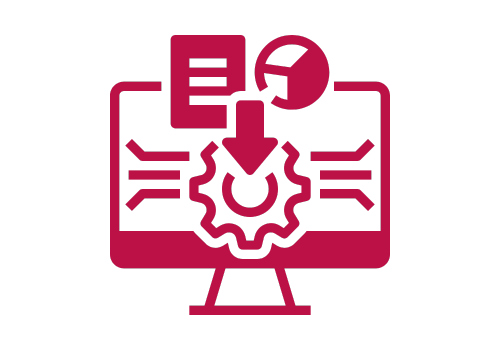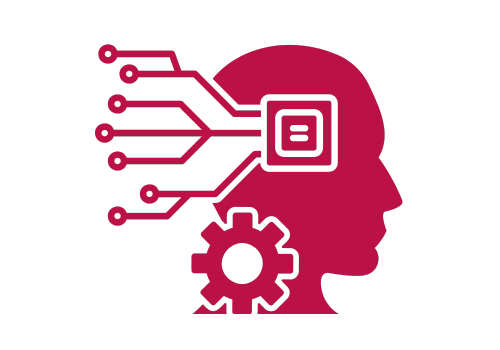Mastering Data Project Management
A Comprehensive Training Course
Why This Training?
In today's data-driven world, managing data projects requires a specialized set of skills distinct from traditional project management. This course dives deep into the nuances of overseeing data-centric projects, ensuring that participants can navigate the unique challenges and intricacies of the data realm. If you aim to lead successful, efficient, and ethical data projects from inception to completion, this training is tailored for you.
Duration: 6 Hours (online / virtual live session)

Who Should Attend?
Project managers transitioning into data-focused roles.
Data scientists or analysts looking to better manage their projects.
IT managers overseeing data teams or initiatives.
Any professional aiming to gain expertise in data project management.
Data scientists or analysts looking to better manage their projects.
IT managers overseeing data teams or initiatives.
Any professional aiming to gain expertise in data project management.

Course Highlights
Grasp the key distinctions between traditional and data project management.
Navigate the entire data project lifecycle, from initiation to successful completion.
Navigate the entire data project lifecycle, from initiation to successful completion.
See more
Master tools and techniques tailored for managing data projects.
Ensure the quality and ethical integrity of your data projects.
Engage with real-world case studies and hands-on group activities for practical insights.
Ensure the quality and ethical integrity of your data projects.
Engage with real-world case studies and hands-on group activities for practical insights.

Pre-requisites
Basic understanding of project management principles.
Familiarity with common data concepts (e.g., databases, analytics).
No specific technical expertise is required, but a background in IT or data roles will be beneficial.
Familiarity with common data concepts (e.g., databases, analytics).
No specific technical expertise is required, but a background in IT or data roles will be beneficial.
What Participants Need to Bring
Laptop/Tablet
For accessing online resources, tools, and interactive sessions. Ensure it has any necessary software installed prior to the session.
Project Management Tools
If participants are currently using any project management software or tools, they should have it ready for customization discussions and hands-on exercises.
Digital Note-taking Tool/Physical Notebook
For jotting down key takeaways, personal reflections, and insights.
Past Project Materials (Optional)
If comfortable, participants can bring anonymized outlines or overviews of past or current data projects they've worked on. This can facilitate richer discussions and personalized feedback.
Internet Connectivity
A stable internet connection to access online platforms and resources during the training.
Write your awesome label here.
Training Content
Mastering Data Project Management
Session 1: Foundations of Data Project Management
Introduction to Data Project Management
- Defining data project management and its significance.
- Differences between traditional project management and data project management.
Key Components of Data Projects
- Data collection, storage, and preprocessing.
- Analytics, modeling, and visualization.
- Implementation, feedback loops, and refinements.
Setting Clear Objectives
- Identifying the problem statement and business requirements.
- Setting SMART goals for data projects.
Data Project Lifecycle
- Initiating: Defining scope, objectives, and stakeholders.
- Planning: Timeline, resources, and risk management.
- Executing: Mobilizing teams and resources.
- Monitoring & Controlling: Tracking progress, addressing risks, and ensuring alignment.
- Closing: Project delivery, reviews, and feedback.
Stakeholder Management in Data Projects
- Identifying and categorizing stakeholders.
- Ensuring consistent communication and managing expectations.
Session 2: Advanced Techniques and Practical Insights
Tools and Techniques for Data Project Management
- Overview of popular project management tools adapted for data projects.
- Customizing workflows and processes in tools for data projects.
Resource Management
- Allocating team members based on expertise.
- Managing computational resources, storage, and tools.
Quality Assurance in Data Projects
- Ensuring data quality: Cleaning, preprocessing, and validation techniques.
- Ensuring model quality: Cross-validation, performance metrics, and evaluation techniques.
Overcoming Common Challenges
- Handling data inconsistencies and missing values.
- Addressing shifting requirements and project scope.
- Ensuring data security and privacy.
Ethical Considerations in Data Projects
- Data bias and fairness.
- Ethical data collection and usage.
- Case Studies and Group Discussion
- Analyzing real-world examples of data project management.
- Group activity: Planning a mock data project.
- Closing and Key Takeaways
- Best practices for successful data project management.
- Encouraging continuous learning and adaptation in the field of data management.
WOMEN AI ACADEMY
Women AI Academy is a gender-equality and technology driven learning & development organization
Site Terms & Info
ETHOS AI Training & Consulting GmbH
Weihenstephanerstr.1281673
Munich-Germany
We are driven by the vision of making AI both ethical and accessible to everyone
Copyright © 2024 Brought to you by Ethos ai AI Training & Consultancy GmbH
Ali Hessami is currently the Director of R&D and Innovation at Vega Systems, London, UK. He has an extensive track record in systems assurance and safety, security, sustainability, knowledge assessment/management methodologies. He has a background in the design and development of advanced control systems for business and safety-critical industrial applications.
Hessami represents the UK on the European Committee for Electrotechnical Standardization (CENELEC) & International Electrotechnical Commission (IEC) – safety systems, hardware & software standards committees. He was appointed by CENELEC as convener of several Working Groups for review of EN50128 Safety-Critical Software Standard and update and restructuring of the software, hardware, and system safety standards in CENELEC.
Ali is also a member of Cyber Security Standardisation SGA16, SG24, and WG26 Groups and started and chairs the IEEE Special Interest Group in Humanitarian Technologies and the Systems Council Chapters in the UK and Ireland Section. In 2017 Ali joined the IEEE Standards Association (SA), initially as a committee member for the new landmark IEEE 7000 standard focused on “Addressing Ethical Concerns in System Design.” He was subsequently appointed as the Technical Editor and later the Chair of P7000 working group. In November 2018, he was appointed as the VC and Process Architect of the IEEE’s global Ethics Certification Programme for Autonomous & Intelligent Systems (ECPAIS).
Trish advises and trains organisations internationally on Responsible AI (AI/data ethics, policy, governance), and Corporate Digital Responsibility.
Patricia has 20 years’ experience as a lawyer in data, technology and regulatory/government affairs and is a registered Solicitor in England and Wales, and the Republic of Ireland. She has authored and edited several works on law and regulation, policy, ethics, and AI.
She is an expert advisor on the Ethics Committee to the UK’s Digital Catapult Machine Intelligence Garage working with AI startups, is a Maestro (a title only given to 3 people in the world) and expert advisor “Maestro” on the IEEE’s CertifAIEd (previously known as ECPAIS) ethical certification panel, sits on IEEE’s P7003 (algorithmic bias)/P2247.4 (adaptive instructional systems)/P7010.1 (AI and ESG/UN SDGS) standards programmes, is a ForHumanity Fellow working on Independent Audit of AI Systems, is Chair of the Society for Computers and Law, and is a non-exec director on the Board of iTechlaw and on the Board of Women Leading in AI. Until 2021, Patricia was on the RSA’s online harms advisory panel, whose work contributed to the UK’s Online Safety Bill.
Trish is also a linguist and speaks fluently English, French, and German.
In 2021, Patricia was listed on the 100 Brilliant Women in AI Ethics™ and named on Computer Weekly’s longlist as one of the Most Influential Women in UK Technology in 2021.

